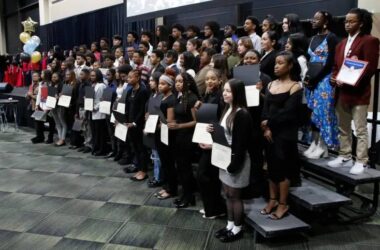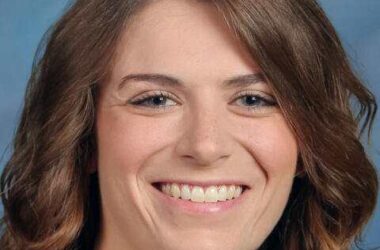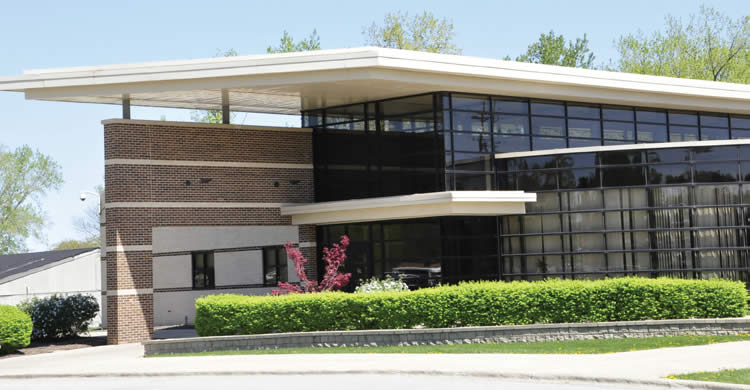
Nesreen Akhtarkhavari, assistant professor and director of Arabic Studies program in the DePaul Department of Modern Languages, helped organize a day-long Arabic Literature conference May 31 on DePaul’s Lincoln Park Campus.
CHICAGO—(ENEWSPF)—May 29, 2014. Poetry, song, film and plays will be among the cultural performances at a teacher conference on Arabic literature and education hosted by the Chicago Arabic Teachers’ Council on May 31 at DePaul University. The event will be held from 9 a.m. to 8:30 p.m. at the Schmitt Academic Center, 2320 N. Kenmore Ave., on DePaul’s Lincoln Park Campus.
The conference will include workshops and panels led by expert guests. Registration begins at 8:30 a.m. followed by a presentation about the standards and practice of teaching literature in the Arabic classroom by conference chair Nesreen Akhtarkhavari.
“The focus this year is learning how to incorporate teaching literature and art into K-12 and university level Arabic classrooms,” said Akhtarkhavari, an assistant professor and director of Arabic Studies program in the DePaul Department of Modern Languages. “We want to engage the community at large in reading and discussing literature from the Arabic world,” she said.
DePaul is one of the few institutions in the United States to offer a bachelor’s and a master’s degree in Arabic Studies. It is the only program in Illinois that certifies teachers to teach Arabic in public schools, according to Akhtarkhavari.
The afternoon session will be opened with remarks from Maged Abulmagd, the consul general of Egypt, who is involved in supporting the promotion of Arabic literature in the Chicago area. The conference will focus on Arabic literature and art, with poetry readings and student presentations. Among panelists are Issa Batarseh, a Jordanian poet and short story writer; Eba’ Ismael a Syrian poet; El-Khidr Choudar, an Algerian poet and translator; Najwa Al-Ward, an Iraqi modern poet; Sam Khamo, an Iraqi translator; Mahmoud Saeed, an Iraqi novelist; and Fouad Teymour, an Egyptian playwright and translator. U.S. translators Alan Salter and Kay Heikkinen will also be on the panel. Michigan University Press will share information about the Jordanian Literature Translation project sponsored by Ihnsan Sweis, the consul general of Jordan.
Batarseh, who will discuss reaching a wider audience through publishing information, was instrumental in the California’s Arabic literary communication movement. He worked with writers and poets of all cultures to plan special events and create platforms in order to promote Arabic literature and build a culturally engaged community within California.
One of Akhtarkhavari’s students will read an Arabic poem that focuses on women’s rights, which was written by Kuwaiti poet Suad Al Sabah.
“The poem my student wants to read crosses cultures by highlighting similarities in the struggles and sufferings women of all cultures face,” Akhtarkhavari said. “The conference is important in today’s world because literature is a bridge into the hearts and minds of every culture.”
The evening cultural performances will include song, a traditional Jordanian wedding procession, silent film, short play, and a Middle-Eastern line dance with audience participation.
The Arabic Literature Conference is free and open to the public but online reservations are required. To register, visit http://bit.ly/RBCqJm.
The conference will be spoken primarily in Arabic with opportunities for small group discussions in Arabic or English. Guests will have opportunities to network and share teaching materials and resources throughout the day, noted Akhtarkhavari.
For more information about the Arabic Studies program at DePaul’s College of Liberal Arts and Sciences visit http://las.depaul.edu/mol.
Source: www.depaul.edu








